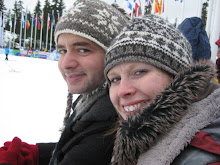 Day 24 (8/12)
Day 24 (8/12)I told Waili I'd stop by the shop, and with a mischievous grin he asked if I had a good time the night before. He told me his father scolded him for getting home too late. He's 28 years old. He treated me to some Uyghur "ice cream", chips of ice shaved from a big block into a bowl with flavoring. He also helped me pick out some Uyghur music CDs and cleared up my confusion about the half-dozen people playing a simple, monotous beat on the drums on the street all day, every day. A new supermarket had opened, and in celebration the drums would keep up the street performance for 15 days, or even 30. Drums are also used to announce weddings, so they're the Uyghur equivalent of Chinese fireworks. I was wondering why trucks sometimes wander the streets with young guys beating away at drums in the back, not that you should necessarily have a reason to do that.
I only managed one tourist-related activity during the day, which was to see the inside of the Id Kah Mosque. The leafy, roofless grounds were pleasant, though surely worshippers mind the tour groups. To me the most interesting thing was the sign at the entrace gate, a fascinating piece of propoganda with all the subtlety of a sledgehammer. After mentioning the restoration of the mosque by the government, the closing paragraph waxed poetic about the perfect harmony and happiness in which Chinese minorities live, and encouraged everyone to work together to fight separatist movements and "illegal religious activities".
The Uyghurs, like many cultures subjected to unnecessarily hot weather, have the amusing habit of sleeping everywhere - in their shops, on a cart, and especially on the patches of grass next to the roads. It's like they got halfway home from the grocery shopping during the afternoon heat and thought you know, screw it, the kids will be alright and this patch of grass is looking pretty good. Not a bad mindset if you ask me.
Day 25 - Yengisar
Besides simply enjoying the atmosphere, I was hanging around Kashgar so I could catch the famous Sunday Market. I had heard it was best to arrive early to avoid the tourists, and that the separate livestock market was more interesting, so I headed there first. The place looked so dead when I arrived that I wondered if the taxi brought me to the right place, but the several tour buses of Westerners served as confirmation. I may have arrived too early after all, and I had an unexplainable urge to turn to someone and say, "boy, there's not much life at this livestock market." It's just as well no one was nearby to receive that paragon of wit.
As the morning unfolded, trucks crammed with cows, donkeys, and sheep made their way into the arena, and things picked up slightly. One bold sheep made a run for his life, possibly having noticed the fly-ridden sheep's heads on the side of the path, but he was quickly shuffled back into the crowd. My favorite thing about sheep is that they sound exactly like people imitating sheep, and not even doing it very well. After waiting a while the chaotic bartering scene I had imagined didn't look like it was materializing anytime soon, and I left with hopes of greater excitement at the Sunday Market.
After having unexpected difficulties getting the taxi driver to understand where I wanted to go (surely every tourist in Kashgar descends upon the Sunday Market), I arrived with anticipation at the event I had structured my week's plans towards attending. However, there was the same strange, dead atmosphere I felt at the livestock market, and I left confused as much as disappoited. I was expecting the crowds of Western and Chinese tourists, but I wasn't expecting there to be so few locals. My guidebook glorified the market and advised "bring twice as much film as you think you'll need"; I took about two pictures. Like a bad album from a favorite band, there was a foulness in the air I couldn't overcome no matter how much I wanted to like it. I did get some useful gift shopping done, but from overheard comments by tour operators and others I suspect the market isn't what it used to be. On the way out I did pass a man selling turtles and baby scorpions, the most satisfying image of the morning.
I felt a bit sad to leave Kashgar, having spent enough days there to grow mildly attached. From there I headed east along the less touristed Southern Silk Road, a series of small towns that are remote enough to have the least diluted Uyghur character. I spent the second half of the day in Yengisar, a small place renowned for making the decorative knives sold throughout the area. Waili had advised against it, saying it was poor, undeveloped, and unfit for tourists. I had been told the same things about Zhangye, so I gave it a shot anyway. He was right; it wasn't interesting, and was the only stop of the trip I should've skipped. It wasn't horrible, and would've been interesting in the impossible event it was the first Uyghur city I'd seen, but the sun was so unbearable I was just torturing myself by being outside. I did get a couple of knives for a good price, but I failed to locate the knife factory and just retreated to my hotel room to read Bill Cosby's "Love and Marriage". You end up with some random things at a book exchange.

No comments:
Post a Comment